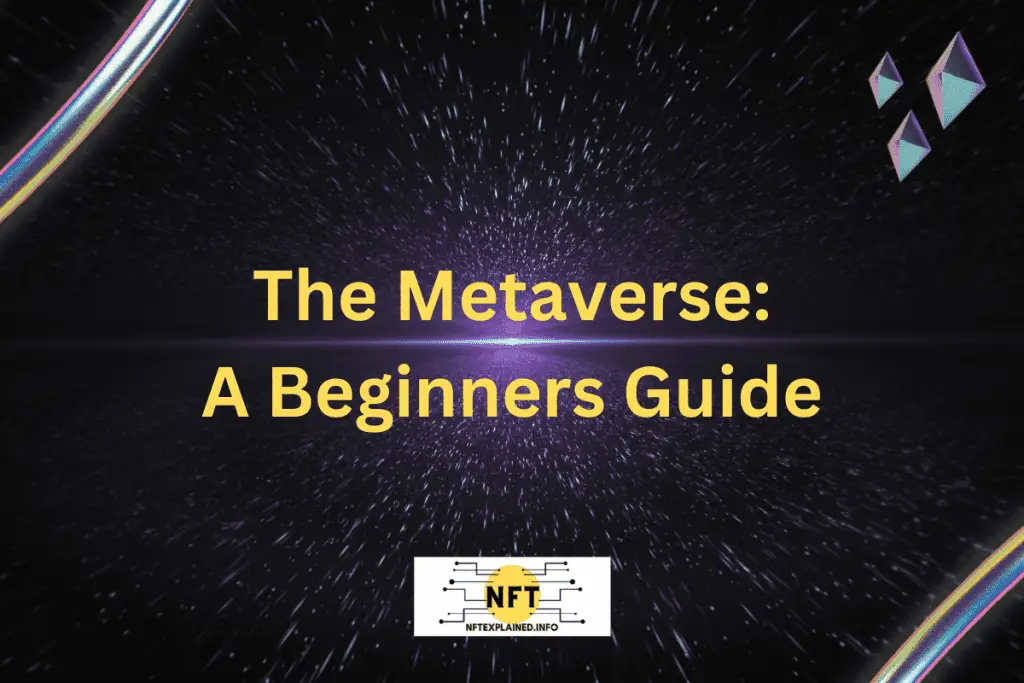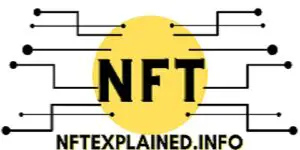
The metaverse is a topic that has gained widestream notoriety and one that many would say has become a buzzword. It is clear that the metaverse is a growing industry with tech conglomerates like Facebook changing their name to Meta in order to position themselves for a specific vision of what’s to come.
So what exactly is the metaverse?
The metaverse is the idea of a 3D virtual world where users can come together to meet in an immersive way. The concept of the metaverse is still in its early stages but is likely to include virtual reality, augmented reality, and blockchain technology – potentially facilitating an extension of the internet.
The concept, technology, and development of metaverse related games have advanced at an astounding rate; if you would like to learn about the history of the metaverse – which dates back to 1935 – click here.
Since the metaverse is still in its early stages it is challenging to say what exactly a metaverse is, and many companies have used the term as a way to gain publicity – even though they are simply producing what many would consider to just be a video game.
That being said, there are core aspects of the metaverse that are widely agreed upon. Many would agree that video games like Fortnite do not qualify to be deemed a metaverse because the video game does not include aspects like non-fungible tokens, interoperability, or a sufficiently wide range of functionality (eg. being able to virtually meet and talk).
There is debate about the requirements of enabling people, worldwide, to meet as a defining characteristic of the metaverse. To illustrate the debate, consider the widely publicized Travis Scott concert that Fortnite hosted… players were put into different servers to watch the experience with a maximum number of avatars (i.e. 100 people per server) even though there were 12 million people “watching”.
The technology was not there to host that concurrent number of people – 12 million – on the same server (in what many would consider to be true metaverse fashion).
Additional key aspects of the metaverse will likely include interoperability, a wide range of functionality (i.e. virtual meetings, education, gaming, entertainment, virtual economy, and more), and emerging technologies (e.g. many aspects of web 3.0 as well as virtual and augmented reality).
Our team previously mentioned that the metaverse could be an extension of the internet in the sense that it would be accessed seamlessly – the same way it is possible to access an HTML page within a few seconds.
Some experts have voiced the argument that the metaverse would/will be its own separate entity, accessed via a different form of infrastructure like a VR headset. This perception has been reinforced by Meta’s push for the adoption of the Oculus. Learn more about the devices that allow you to immerse yourself in the metaverse here.
People widely agree that the metaverse will also provide more stimulus in the sense that software and sensors will completely build the illusion that a person in the real world is actually in a different, virtual world.
By interoperability, our team means the ability to own digital items – like NFTs – that are capable of moving seamlessly across different platforms; this will give users the ability to sell these items on platforms and bring the same item to another virtual world. This is a marked contrast to today’s video and online games, where virtual goods are tied to a single environment.
It is clear that the metaverse is an investment area that is set to eventually boom and affect many sectors including fashion, gaming, and the remote work industry; more on how the metaverse will transform certain industries here.
All things considered, many agree that we are still in the earliest stages. Technological advancements and many more aspects are being built day by day to move this idea forward.
Let’s further examine these topics.
Is The Metaverse The Future Of The Internet?
With virtual worlds still being in its infancy, it’s impossible to say but there are a few things that are evident.
The metaverse could potentially be an extension of the internet in that it evolves the way virtual interactions playout. One aspect that is clear, is that many people and companies (i.e. Facebook {now Meta} & Microsoft), and many sub sectors (eg. VR technology) – are investing in the idea.
Direct metaverse investments from Meta, which shows that the company really believes this is the future – hence the name change – provide insight into what some of the smartest and resource-rich firms are predicting. How will this investment pan out? We’ll have to wait and see.
Aside from direct investments, subcategories of VR and being developed, and many firms have raised huge sums of venture capital in order to contribute to developing this idea.
Another aspect that average people or consumers are somewhat hesitant about with regards to the metaverse is that they think it may be ‘scary’ or ‘odd’. This is evident from polls that have come out, a perspective supported by taking a look at the overall price trend for Meta’s stock.
With many consumers pushing to have a metaverse that is fully decentralized, the risks of having bad actors that are hard to remove comes into play.
While there are trade-offs to having a few companies own the majority of any sector, the risks of the metaverse being fully decentralized may come as well.
The potential upside of having a decentralized metaverse is that the virtual world will be more scalable in the sense that users will have the freedom to contribute to and build out different sectors of the virtual world. Additionally, having a fully decentralized metaverse means that resources aren’t limited to one company.
Being fully decentralized however provides opportunity for greater anonymity and therefore could potentially contribute to lawlessness and online harassment; it’s obvious no parent would want their child going to a virtual world where the potential to be verbally assaulted or harassed is present.
Total decentralization comes with the risk of poor governance and could potentially make it difficult to quickly ban bad actors.
Decentralization leads our team to our next point – NFTs and the metaverse.
What Is The Role Of NFTs In The Metaverse?
Many agree that NFTs will be integral to the development of the metaverse as users increasingly want digital ownership of their in-game items. NFTs will likely be the foundation for a virtual goods-based economy in the metaverse and will likely be interoperable among many metaverses.
The foundation for how the exchange of money for virtual goods – that users can prove they own – will be facilitated by smart contracts (a core aspect of NFT technology).
In a decentralized metaverse people will build virtual estates and items likely be sold as NFTs; NFTs will include any virtual goods that players can buy and players likely will have sovereign control over their items.
Interoperability comes in by allowing users to take their NFT and use it in any metaverse; interoperability will also allow players to take their NFT out of one metaverse so it can be listed on marketplaces and exchanges for real currency.
Giving players the ability to earn will expedite how fast the metaverse is built and is sure to impact the functionality of the virtual world. This will therefore increase the enjoyability for the average users who might partake for fun.
Again, it’s highly likely that metaverse functionality will be expedited if a creator economy is put into place and NFTs are the ideal way to enable users to have full control over their digital items.
We’ve observed this phenomenon take place in a variety of existing metaverse related games; you can find our list of top 10 metaverse related projects here.
Given your new understanding and thoughts you may have about the way the economy will likely function in the metaverse, let’s further examine how the metaverse will be accessed.
How Will The Metaverse Be Accessed?
The metaverse will likely be accessed by some form of emerging technology like virtual reality, augmented reality, and involving some form of blockchain technology. The metaverse could also be an extension of the internet and will likely be accessible via a variety of different technologies.
Virtual reality headsets like Meta’s Oculus is one potential way that the metaverse will be accessed. Augmented reality via desktop, mobile devices, or headsets is another possibility.
By blockchain technology – we are referring to the currency that will likely be used in the metaverse and the underlying foundation for how the metaverse will be built.
The metaverse may also be another extension of the internet in the sense that it will be one of the options provided – the same way images and articles are easily clickable and accessible.
In general, it is impossible to say exactly how the metaverse will be accessed; however it is likely that a variety of input devices will be used in order to create a fully immersive experience for the user.
To conclude our team’s article, we will examine some metaverse stocks.
What Are The Best Metaverse Stocks?
To preface our answer to this question, our team will note that we are in no way providing financial advice; our sole purpose is to create educational content.
Facebook, now Meta, is at the forefront of developing their own metaverse and AR/VR technologies that will likely be used in the metaverse. Unity is another viable option as the company is a leader in the 3D space. Cloudflare is a company that may contribute to how the metaverse network is accessed.
Meta needs no introduction and is a company really pushing forward this idea, powered by a staggering level of investment.
In addition to being a leader in the 3D space, Unity also creates services for creating AR and VR applications; AR and VR technology are widely forecasted to revolutionize immersiveness within gaming and therefore be used to access the metaverse.
Regardless of how the metaverse is authored, or which devices consume it, there is no doubt that a high level of internet performance is necessary – especially in a true metaverse where all users will be visible to one another – and Cloudflare provides some services that may be used.
For example, Cloudflare may help with the security of the metaverse by improving upon and optimizing some of their current products like their domain name system (DNS) which currently increases website performance.
Thank you for taking the time to learn with us.
If you found our content helpful please consider following our team on Instagram, Twitter & TikTok! As well as subscribe to our YouTube!
Additionally, please consider supporting our team’s content creation through doing business with our partners: Buy a Ledger hardware wallet. Trade stocks & crypto on Webull – get 2 free stocks. U.S. users can get a crypto trading discount on Binance!
